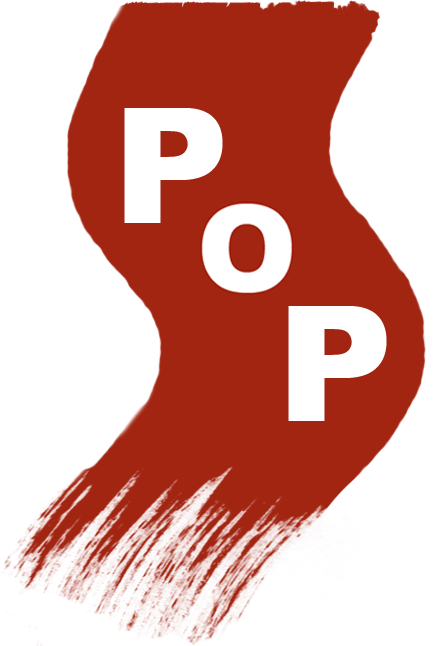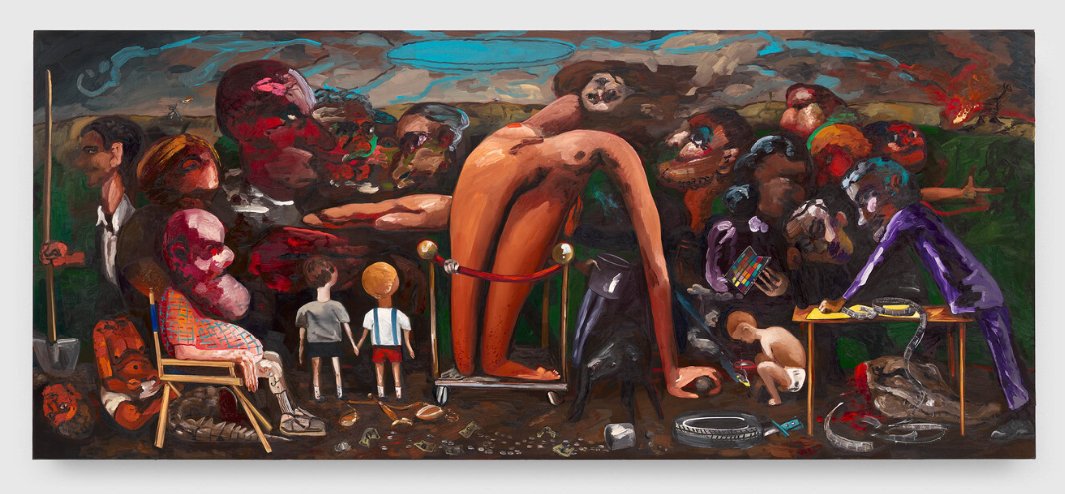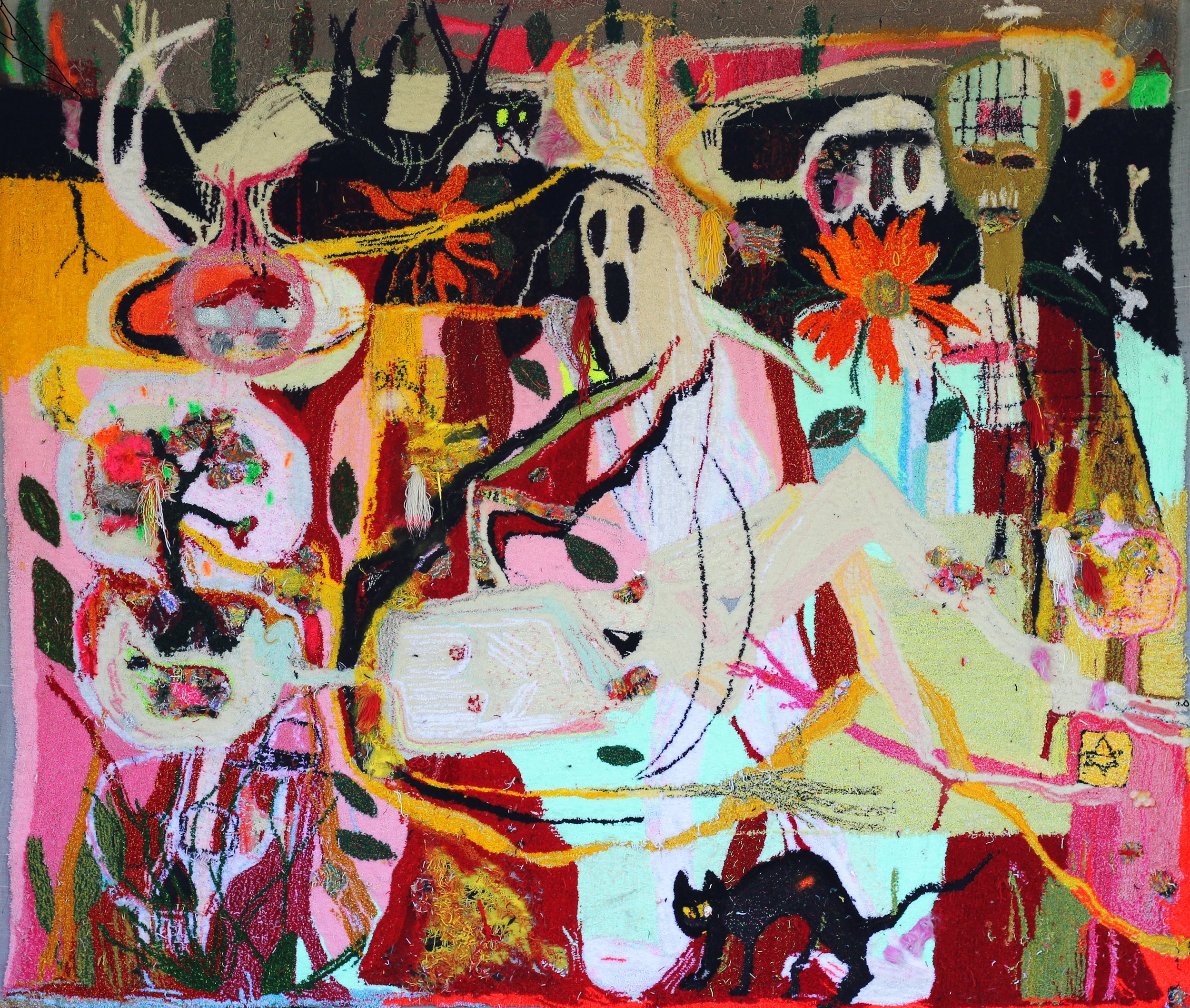The Journey: Marik Lechner on Dana Schutz
"The greatness of man lies in his decision to be stronger than his condition."
— Albert Camus
In October, my solo exhibition, "Mild Pain Guaranteed," opened at the L'space gallery in Chelsea, New York. The opening was in the shadow of the horrific events of the seventh of October in Israel, what is called here "Black Sabbath," following which my reality froze in time. The evidence of diabolical violence committed by Hamas that kept coming was beyond comprehension and, with the retaliatory attacks on the Hamas in Gaza, and the continuity of the war, with disastrous consequences for the Palestinians, the circle of violence just kept growing, and innocents keep being hurt. In my art, I deal quite a bit with trauma, the grotesque, the promiscuity of erupting emotions, a stupid carnival of evil and death, and the absurdity that usually complements situations of horror. First, reality merged with the surreal, then replaced it, and even surpassed it to new levels.
Dana Schutz, The Gathering, 2023, Oil on canvas, 108 x 252 inches
During the time of my show, Dana Schutz's “Jupiter's Lottery” at David Zwirner Gallery, was on exhibit across the street and I visited it many times. I am a big fan of her work and, for many years, I have felt a deep connection to her art. I sense that it comes from a similar place to my own, where the most terrible aspects of reality coexist alongside the most sublime, and there is no contradiction between them. I believe she sees things as I do, with a dazed look at all the beauty and ugliness of the world. The following text was inspired by her work, and was written deep in the shadows of the violent events of the seventh of October which, for us, living in the region, opened the gates of hell.
Dana Schutz, Beat out the Sun, 2018, Oil on canvas, 94X87 1/2 inches
Wrinkled from the frozen sun they set off, loaded with junk, scorched memories and useless equipment, ridiculous looking weapons hastily piled up, their sacks unraveled and their pets at death's door. The destination is unknown, the place of origin is unknown, but they journey with a determined step. Desperate and dumbfounded by drugs or ridiculous violence, they must continue, like an ancient river murky from the deaths that have passed through them. No mother or father, just brothers in arms. Alone, helpless against a power superior to them, condemned to walk or be dragged. They shout the thunder of existence from their guts, vomit their souls, gurgling snot. Those who remain on the side of the road, tied to a rock, crucified like thieves, chained like Prometheus to a cliff, generously abandon their livers to the birds of prey. Nothing will satisfy their hunger for revenge or compensate them for the homes or property that were looted from them. What action should they take in the face of the unconstrained violence around them? The choice to act, too, was taken from them. Deformed creatures, whose faces are marked by the long journey, banished from the fire that once warmed them, they wear their hearts like damaged jewels. Looking in terror at the shrieking void.
Dana Schutz, The Arts, 2021, Oil on canvas
Stack after stack, they roll from painting to painting. Corpses celebrating a bacchanalian ritual, a pile of human bones inside a horribly dilapidated caravan, wasted from neglect. A figure formed from the darkest materials reaches out for help, hands open with hope. And here is a boy, or is it a girl? She went out to sing a wild song in a field of thorns that will set the world on fire. A green creature wields a walking stick made of thigh bone, its body freckled with a disturbing rash, but it also sings and sings a hollow chant. It is a marathon of violence in which no one hurries to get anywhere. A grotesque, elaborate stage. The genius promiscuity of a witch painter, with turpentine instead of blood flowing through her veins. A painting like Schutz's, which can compete in the number of souls with the best New York cats, cannot die; it will remain to remind us of the absurdity of human existence, even after the mother of all revolutions: the apocalypse.
Marik Lechner, Underground, 2019, wool and polyester, 290/270 cm
Marik Lechner was born in 1967 in Chernovitz, Ukraine and emigrated to Israel with his family in 1973. He has had solo shows at the Tel Aviv Museum of Art, Herzliya Museum of Contemporary Art, L'space art gallery, New York, Givon Art Gallery, Tel Aviv, and Feinkunst Krüger Gallery, Hamburg, Germany, among others and has participated in group exhibitions in Germany, Latvia, and Israel. Lechner has won several awards, among them Israel's National Lottery Prize for Culture and Art, and the Lauren & Mitchell Presser Contemporary Art Grant. He is represented by L'space art gallery, NYC, and by Givon art gallery, Tel Aviv.




